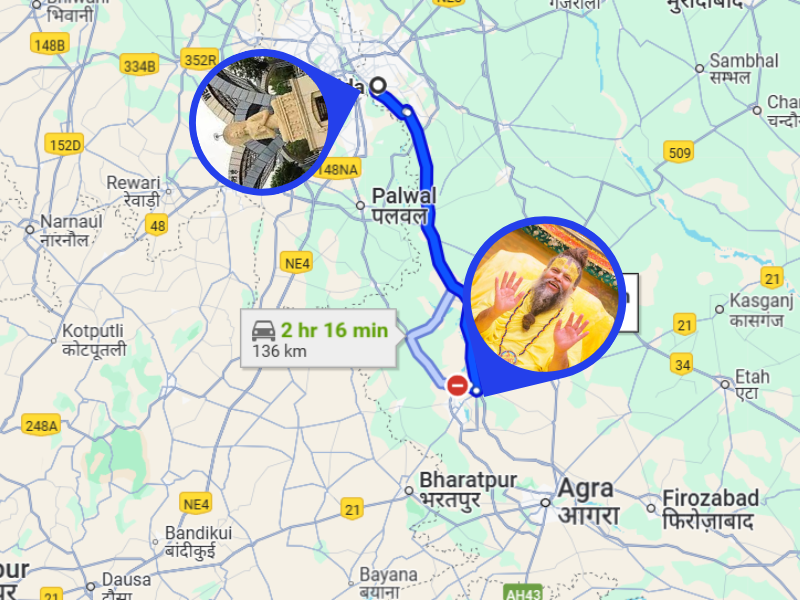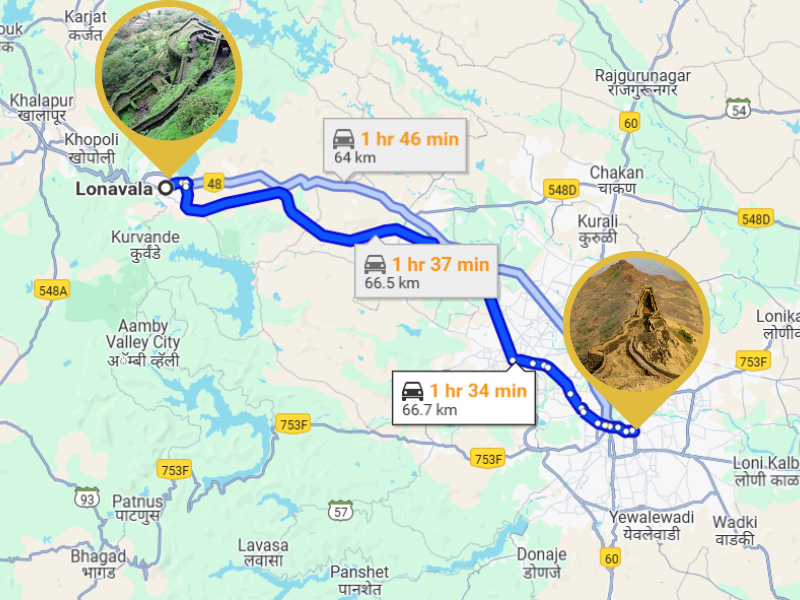How Car Sharing Reduces Travel Costs and Emissions -rideok.in

In an era of increasing urbanization and environmental concerns, car sharing has emerged as a practical solution to two pressing challenges: high travel costs and escalating carbon emissions. As more people recognize the economic and ecological benefits of shared mobility, the popularity of carpooling, car sharing apps, and ridesharing apps continues to grow worldwide. This article explores how car sharing not only saves money but also contributes to a greener planet by minimizing the environmental impact of transportation.
Understanding Car Sharing
Car sharing refers to the practice of multiple individuals sharing a single vehicle for a journey or as part of a service model. This concept includes various modes, such as carpool services, peer-to-peer car rental, and ridesharing apps, all aimed at reducing the need for owning and using private vehicles.
Instead of each person driving their own car, car pooling allows for the collective utilization of a vehicle, making travel more efficient, economical, and environmentally friendly.
How Car Sharing Reduces Travel Costs
1. Shared Fuel Expenses
One of the most significant costs of driving is fuel. By sharing a ride, passengers split the cost of fuel, substantially reducing individual expenses. For instance, a long-distance trip that might cost ₹3,000 in fuel for one person could be shared among three passengers, bringing individual contributions to just ₹1,000 each. With carpool services, these savings are even more structured and predictable.
2. Lower Maintenance Costs
Owning a car comes with recurring maintenance costs such as servicing, oil changes, and tire replacements. When you participate in a car sharing application, these costs are distributed among multiple users, especially in cases where vehicles are owned by a central service or rented out by individuals.
3. Reduced Toll and Parking Fees
Traveling alone often means bearing the entire cost of tolls and parking. With car pooling, these expenses are divided among passengers, leading to significant savings. Additionally, many cities offer discounts or incentives for vehicles involved in a carpool service, further reducing costs.
4. Avoiding Vehicle Ownership Costs
For those who frequently use car sharing apps, the need to own a personal vehicle diminishes. This eliminates major expenses like car loans, insurance premiums, and annual registration fees. Over time, this can save thousands of rupees annually.
5. Cost-Effective Commuting for Daily Travelers
Daily commuters, such as office-goers and students, often spend a large portion of their income on transportation. Car sharing applications provide an affordable alternative to taxis, ride-hailing apps, or owning a personal vehicle, allowing regular travelers to save considerably over time.
How Car Sharing Reduces Emissions
1. Fewer Cars on the Road
Car sharing directly reduces the number of vehicles on the road. With more people using a single vehicle through car pooling or a ridesharing app, traffic congestion decreases, resulting in less idle time and lower emissions from idling engines. Fewer cars also mean less demand for manufacturing new vehicles, which itself is a significant source of carbon emissions.
2. Decreased Fuel Consumption
By maximizing vehicle occupancy, car sharing ensures that fewer cars are used to transport the same number of people. This reduces overall fuel consumption, which is a primary contributor to air pollution and greenhouse gas emissions.
3. Encourages Use of Eco-Friendly Vehicles
Many car sharing applications prioritize using fuel-efficient or electric vehicles (EVs) in their fleets. These vehicles produce fewer emissions compared to traditional gasoline-powered cars, promoting a cleaner transportation ecosystem.
4. Reduced Urban Air Pollution
In densely populated urban areas, vehicular emissions are a leading cause of air pollution. Car pooling helps cut down on the total number of vehicles emitting harmful gases such as carbon dioxide (CO2), nitrogen oxides (NOx), and particulate matter, improving air quality and public health.
5. Optimized Travel Patterns
Car sharing apps often use technology to optimize routes, ensuring that vehicles take the most efficient path to their destination. This minimizes unnecessary detours, reduces fuel wastage, and lowers the overall carbon footprint of shared rides.
Economic and Environmental Benefits of Car Sharing
1. Increased Savings for Users
Car sharing apps provide substantial cost savings to users by distributing expenses among multiple passengers. It is particularly beneficial for occasional drivers who may not need a car daily but still require access for specific trips.
2. Encourages Sustainable Lifestyles
The convenience and cost-effectiveness of car sharing applications often lead users to adopt more sustainable transportation habits. For instance, people may choose to carpool regularly instead of driving alone, reducing their individual carbon footprints.
3. Reduces Demand for Parking Spaces
Urban areas face a chronic shortage of parking spaces due to the high number of vehicles. Car sharing reduces the need for individual cars, freeing up valuable space in crowded cities. This space can then be repurposed for green areas, pedestrian pathways, or other community-oriented projects.
4. Supports the Growth of Renewable Energy
With the increasing integration of electric vehicles in car sharing fleets, there is a growing demand for renewable energy sources to power these vehicles. This shift supports the global transition to cleaner energy systems.
5. Promotes Community Building
Car sharing fosters a sense of community by connecting individuals with similar travel needs. It encourages interaction among people, creating social networks and enhancing the overall travel experience.
Challenges and Solutions
Despite its many benefits, car sharing faces certain challenges:
-
Initial Hesitation: Many people are reluctant to share rides due to privacy concerns or a lack of familiarity with the concept.
Solution: Building awareness about the financial and environmental benefits of car sharing can encourage adoption. -
Coordination Issues: Coordinating schedules and routes among multiple passengers can be complex.
Solution: Ridesharing apps use algorithms to match users with similar routes and preferences, making coordination seamless. -
Perception of Inconvenience: Some travelers perceive car sharing as less convenient compared to solo travel.
Solution: Improved technology, real-time tracking, and flexible scheduling can enhance the user experience.
The Role of Technology in Car Sharing
Modern car sharing platforms leverage technology to provide smooth and efficient services. Key innovations include:
- Real-Time Matching: Algorithms match users traveling on similar routes, optimizing vehicle occupancy.
- Mobile Apps: Intuitive car sharing apps allow users to book rides, split costs, and communicate with co-passengers.
- Eco-Tracking Features: Many apps provide users with data on emissions saved per ride, promoting sustainable habits.
The Future of Car Sharing
Car sharing is set to play a pivotal role in shaping the future of urban transportation. With advancements in autonomous vehicles and the proliferation of electric cars, car sharing applications are likely to become even more efficient and environmentally friendly. Governments and organizations are also increasingly supporting carpool services through policies, incentives, and infrastructure development.
Recent Blogs
-

Carpooling from Noida to Vrindavan: A Spiritual and Sustainable Travel Choice
-

Carpooling from Lonavala to Pune: Smart, Safe Travel
-

Start Your Journey with a Wave and a Smile — Carpooling Brings Friends Together and Turns Every Ride into a Memory!
-

Carpooling from Pune to Aurangabad: A Smart and Sustainable Travel Choice
-

Carpooling from Pune to Goa: A Cost-Effective and Eco-Friendly Travel Option
-

Carpooling from Mumbai to Lonavala: A Smart, Cost-Effective, and Eco-Friendly Travel Choice
-

Carpooling from Bhopal to Indore: A Smart and Cost-Effective Travel Option
-

Carpooling from Varanasi to Prayagraj: A Smart and Sustainable Travel Option
-

Carpooling from Lucknow to Prayagraj: A Cost-Effective and Eco-Friendly Travel Solution
-

Carpooling from Kanpur to Prayagraj: A Smart and Eco-Friendly Travel Choice
-

Carpooling from Kolkata to Shantiniketan: A Cost-Effective and Sustainable Travel Choice
-

Carpooling from Chennai to Tirupati: A Convenient and Eco-Friendly Journey
-

Carpooling from Ahmedabad to Gir National Park: A Convenient and Eco-Friendly Travel Option
-

Carpooling from Pune to Mahabaleshwar: A Scenic, Cost-Effective Journey
-

Carpooling from Pune to Sangli: A Sustainable, Cost-Effective, and Convenient Journey
-

Carpooling from delhi to Vrindavan: A Convenient, Cost-Effective, and Eco-Friendly Way to Travel
-

Carpooling from Delhi to Mata Vaishno Devi: A Spiritual Journey Made Affordable and Convenient
-

Carpooling from Pimpri-Chinchwad to Pune: An Eco-Friendly and Cost-Effective Commute
-

Carpooling from Chandigarh to Ludhiana: The Smart Way to Travel
-

Carpooling from Delhi to Shimla: A Cost-Effective and Eco-Friendly Travel Option
-

Discovering Carpooling Opportunities from Haldwani to Delhi NCR with rideok.in
-

Turning the Wheels of Change: A Greener, Smarter, and More Affordable Commute with RideOK
-

How Car Sharing Reduces Travel Costs and Emissions -rideok.in
-

Carpooling from Pune to Sangli: A Smart, Budget-Friendly Way to Travel
-

Carpooling from Pune to Kolhapur: A Convenient, Cost-Effective, and Environmentally Friendly Option
-

Carpooling from Nashik to Mumbai: A Smart, Budget-Friendly, and Eco-Conscious Way to Travel
-

Carpooling from Nashik to Pune: A Cost-Effective, Eco-Friendly Travel Solution
-

Carpooling from Bangalore, Karnataka to Chennai, Tamil Nadu: A Sustainable and Cost-Effective Travel Option
-

Carpooling from Delhi to Kurukshetra: A Sustainable and Cost-Efficient Travel Solution - RideOk.in
-

Carpooling vs. Solo Drive in India: What’s the Better Choice?
-

Carpooling from Delhi to Farrukhabad via Chhibramau: A Convenient, Cost-Effective, and Eco-Friendly Travel Solution
-

Carpooling from Delhi NCR to Hisar, Hansi, Rohtak, and More: A Smart Travel Option
-

Carpooling from Delhi NCR: Your Guide to Convenient Routes to Karnal, Panipat, Sonipat, and More
-

Experience the Ease of Carpooling: Your Convenient Travel Option from Delhi NCR to Amroha and Beyond
-

Carpooling from Delhi to Jaipur: The Smart and Eco-Friendly Travel Solution
-

Carpooling from Noida to Lakhimpur: A Convenient and Eco-friendly Journey
-

The Growing Popularity of Carpooling: Traveling from Kanpur to Lucknow, Ahmamau, and Mubarakpur
-

The Growing Trend of Carpooling: Traveling from Noida, Delhi, Gurugram, and Ghaziabad to Aligarh and Khurja
-

Carpooling from Noida to Mainpuri and Beyond: RideOK.in Simplifies Your Commute
-

Carpooling from Noida to Ambala – RideOK.in: Your Best Travel Companion
-

Seamless and Budget-Friendly Carpooling: Travel from Noida, Delhi, and Gurugram to Kasganj, Etah, and More
-

Best Carpooling Experience: Journey from Noida, Delhi, Ghaziabad, and Gurugram to Haridwar, Rishikesh, Dehradun, and Mussoorie with RideOK.in
-

Seamless Journeys: Carpooling with RideOK.in from Gurugram, Noida, and Delhi to Farrukhabad
-

Seamless Carpooling from Noida, Gurugram, and Delhi to Alwar, Rajasthan – RideOK.in: Your Trusted Travel Companion
-

Carpooling from Noida to Bareilly: Affordable and Convenient Rides
-

RideOK: The Best Free Carpool App in Delhi for Affordable and Eco-Friendly Travel
-

RideOK: The Best and Completely Free Carpooling Application for Outstation Travel
-

Why Carpooling is Becoming Popular in India - rideok.in
-

RideOK.in: The Best Application for Outstation Carpooling in India
-

Carpooling: A Smart Choice for Sustainable Travel
-

How Carpooling Can Improve Your Work-Life Balance?
-

How Carpooling Reduces Your Carbon Footprint: A Sustainable Choice for City Commuters
-

Top 10 Reasons to Start Carpooling Today
-

A Stress-Free Daily Commute: Carpooling from Delhi to Gurgaon
-

RideOk.in: Your Go-To Solution for Sustainable Carpooling
-

The Ultimate Guide to Carpooling: Save Money, Time, and the Planet Whether You're Commuting Locally or Traveling Long Distance






